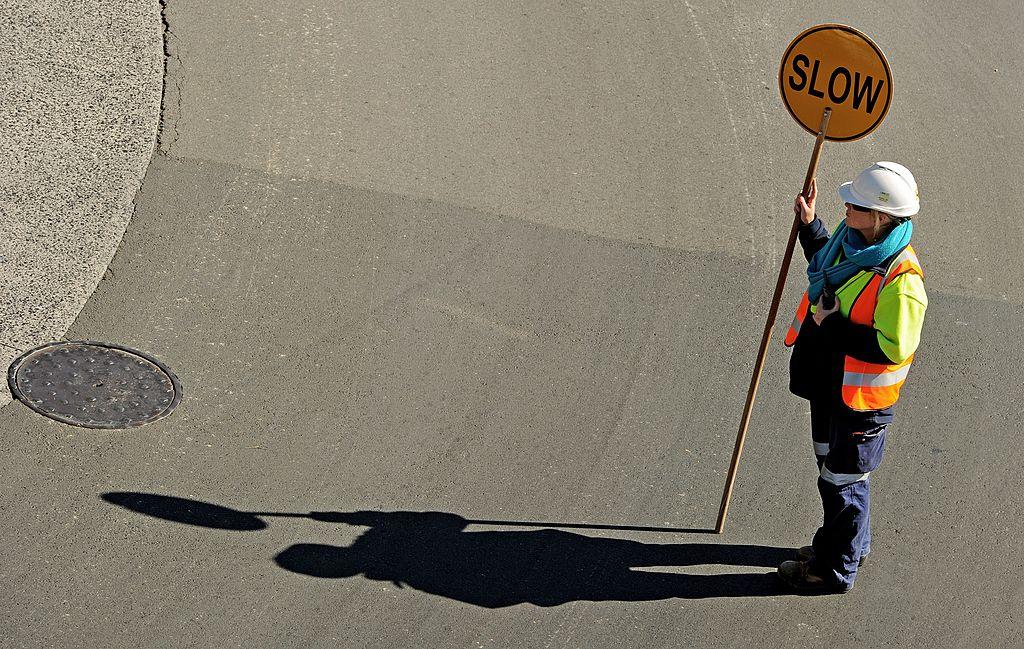Australia needs to pick up the pace on innovation
Posted By Gill Savage and Matthew Page on June 11, 2021 @ 12:30

Now more than ever Australia needs to be innovative, and our science and technology base is the key to driving national innovation [1].
While our Covid-19 experience has reminded decision-makers to value and trust expert scientific advice [2], it’s still not an automatic response. Coupled with the devasting impacts on universities of pursuing overseas research investment and full fee-paying international students, the university sector is in a risky position.
Earlier this year, the head of Universities Australia, Deborah Terry, spoke [3] on the value of Australia’s higher education sector in fostering Australian research and innovation. Professor Terry referenced Australia’s ranking in the World Intellectual Property Organization’s 2020 Global Innovation Index [4]. The results were surprisingly underwhelming and signal a need for a rethink of how Australia supports innovation and the value we place on our higher education and research sectors.
The index ranked Australia just 23rd out of 133 countries for overall innovation and 6th in our region behind Singapore, South Korea, Hong Kong, China and Japan. We ranked higher in innovation inputs (13th), driven by factors like our internationally recognised tertiary education sector and relatively open and stable political, regulatory and business environments. However, our ranking was considerably lower in innovation outputs (31st), which includes the creation of knowledge, technology, and creative goods and services involved in translating research and development efforts into commercial outcomes.
In short, Australia excels in the ‘R’ of ‘R&D’ and falls short in the ‘D’—but that’s nothing new.
Over the years, a plethora of Australian government strategies, policies and task forces have targeted innovation. Yet Australia’s spending on research and development as a percentage of GDP has declined year on year since 2008 [5]—falling to just 1.79% in 2017, compared to the OECD average of 2.48%. The fact that Australia’s innovation problem has persisted suggests that there are more complicated, systemic barriers to innovation stemming from a historical, cultural and philosophical aversion to investing in ourselves.
Despite Australian inventions like the stump-jump plough, Hills Hoist, black-box flight recorder, cochlear implant and Wi-Fi, we’ve never been a country economically geared for innovation. Investment in potentially great ideas has always taken second place to our preference for exporting our natural resources.
Australia originally focused on exporting agricultural commodities like wool, wheat and butter, then expanded into minerals and fuels such as coal, iron ore and natural gas, changing major trading partners from the UK, to Japan, to the US, and now China. While professional services, particularly international education, have gained a place among our top exports, Australia has relied heavily on the benefits of a major and unanticipated early 2000s mining boom.
Sadly, cultural cringe continues to be alive and well in Australia. Michael Lucas of Engineers Australia says [6], ‘Although a lot of robotics technology is developed in Australia, local businesses tend to buy their products overseas. They want to see someone else use them first.’ Ask any budding innovative entrepreneur and they’re likely to agree.
The changes to university research commercialisation [7] and the purpose of higher education institutions have been decades in the making. Universities’ heavy reliance on international student enrolments for funding has created an unsustainable dependency and international research partnerships have raised concerns of foreign interference. International funding for Australian university research has grown exponentially [8] since 2000, and in 2018 most universities relied on discretionary income [9] spending to fill research funding gaps. Much of this income comes from international students; some estimate that 27% of total research expenditure [10], or about $3.3 billion, relies on profits from international students.
Developing an innovative idea from concept to practical application requires sponsorship, investment and time, which Australian companies like SPEE3D know well. SPEE3D has developed a world-leading 3D printer that can rapidly manufacture components in a variety of different metals and alloys. Last year the Northern Territory government invested $2.75 million [11] for SPEE3D to establish its research and development headquarters in Darwin. Without this kind of forward thinking and funding from governments, the fruits of research and development by universities and companies are destined to head overseas.
There are two challenges to address. The first is understanding that a robust science and research base underpins innovation and that a diminished university sector limits Australia’s opportunity to lead in pure and applied science and research.
The second is that, without whole-of nation investment in innovation—whether by Australian governments, businesses, or both—entrepreneurs who are unable to self-fund will seek funding overseas.
Australia has a long history of gaining a competitive advantage in new and innovative technologies and an equally long history of forcing researchers and innovators to look overseas for funding. Covid-19 has highlighted areas in which we could have handled things better and in which we shouldn’t repeat the errors of the past. Innovation is one of those areas.
Article printed from The Strategist: https://aspistrategist.ru
URL to article: /australia-needs-to-pick-up-the-pace-on-innovation/
URLs in this post:
[1] national innovation: /covid-19-shows-need-to-accelerate-national-policymaking-for-future-challenges/
[2] expert scientific advice: /disinformation-threatens-evidence-based-policymaking/
[3] spoke: https://news.curtin.edu.au/media-releases/transcript-national-press-club-address-vice-chancellor-professor-deborah-terry/
[4] 2020 Global Innovation Index: https://www.wipo.int/edocs/pubdocs/en/wipo_pub_gii_2020.pdf
[5] declined year on year since 2008: https://www.abs.gov.au/statistics/industry/technology-and-innovation/research-and-experimental-development-businesses-australia/latest-release#:~:text=During%202017%2D18%2C%20expenditure%20on,Australian%20businesses%20was%20%2417%2C438%20million.
[6] says: https://createdigital.org.au/culture-lack-innovation-robotics/
[7] The changes to university research commercialisation: https://www.dese.gov.au/urc
[8] grown exponentially: https://www.universitiesaustralia.edu.au/wp-content/uploads/2020/11/200917-HE-Facts-and-Figures-2020.pdf
[9] relied on discretionary income: https://melbourne-cshe.unimelb.edu.au/lh-martin-institute/fellow-voices/strong-research-performances
[10] 27% of total research expenditure: https://www.aph.gov.au/About_Parliament/Parliamentary_Departments/Parliamentary_Library/pubs/rp/BudgetReview202021/HigherEducationResearchTeaching
[11] $2.75 million: https://newsroom.nt.gov.au/mediaRelease/33671
Click here to print.